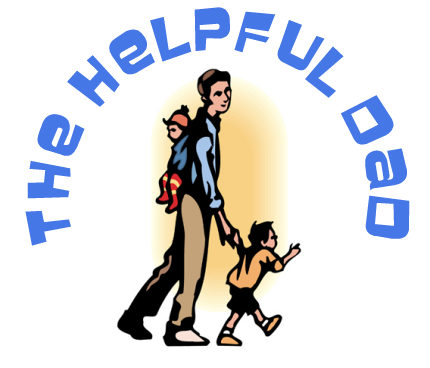We live in troubled times – just like the disciples of Christ did. We are plagued by feelings of fear, weakness, pride, anger, and more – just like Christ’s apostles were. Which begs the questions – are their lessons we can learn from Jesus’ followers to help improve our own lives? I want to share an article with you that I read on The Federalist – it’s beautiful and I hope you enjoy it…
This Holy Saturday, Remember The Disciples, Whose Fear And Weakness Is Our Own
By Christopher Bedford, TheFederalist.com
We revere the saints of the Gospels. Matthew and Mark, Luke and John, Peter, Philip and Simon, James, Andrew, Bartholomew, and Thaddaeus.
Their courage in spreading the Word from Ukraine to Egypt and from India to Spain, and their bravery when put to death, serve as examples most of us can only hope to approach. But it comes more naturally to follow their path on Holy Saturday when Jesus lay in the tomb and his handpicked followers cowered in fear. In these times, we might prefer to look at them as if apart from us — it’s easy, as we prepare for the vigil or for Easter morning. But in truth, these are the very days when we are most like the Twelve.
On his final journey to the cross, the Apostles failed and faltered repeatedly. They’d lived in the shadow of Christ, holding his hand, hearing his words, seeing his miracles, and yet they did not understand. Worse yet, they were afraid. Along with Judas Iscariot, they were among the first to follow the Lord — and the first to leave him: Judas, to betray and suffer damnation, but the others to fall asleep, to cower, to deny, and to hide. And from the beginning, it was so.
After hearing how Peter begged Christ not to go to Jerusalem to suffer his passion and die, we might wonder how he could dare rebuke God’s plan. But today, we know the journey Christ was on and we’ve heard it a thousand times; his Disciples walked it, and they were afraid.
Today, we know it was for Jesus to suffer, die, be buried, and rise again on the third day, and we know that he did this to free us from sin, yet still, in public and in private we disobey him. Every one of us, to some degree or another, is guilty. This is certain because we are human. Though firm in his command to a frightened Peter, Jesus explained just where his follower had erred. “You,” he said, “are thinking not as God does, but as human beings do.” The Lord knew why Peter was afraid, just as he knows why we are weak in our moments of trial, fearing sacrifice and death. Fearing pain.
“There is nothing more tragic in all the world than wasted pain,” the Venerable Archbishop Fulton Sheen once said. “Think of how much suffering there is in hospitals, among the poor and bereaved.”
Think also of how much of that suffering goes to waste. How many of those lonesome, suffering, abandoned, crucified souls are saying with our Lord at the moment of Consecration: “This is my body, take it?” And yet that is what we should be saying at that second. “Here is my body, take it. Here is my soul, my will, my energy, my strength, my poverty, my wealth—all that I have. It is yours. Take it! Consecrate it! Offer it!” Offer it to the Heavenly Father with yourself, in order that he, looking down on this great sacrifice, may see only you, his beloved Son, in whom he is well pleased. Transmute the poor bread of my life into your life; thrill the wine of my wasted life into your divine Spirit; unite my broken heart with your Heart; change my cross into a crucifix.
Sheen’s words are beautiful. They are comforting to meditate on. In them, we have the tools to face anything, yet while in my own private moments of anguish I have sometimes succeeded, I can vividly recall the times I have failed utterly and completely.
The Disciples had been told they were following Christ to his passion, and while they struggled to understand they followed him still to Jerusalem. It’s easy to plan to offer ourselves up in times of distress and great pain, but at the moment when panic, anguish, and real hurt rack us, more often man falls short.
Again and again, Christ’s chosen faltered just as we have and will. At Holy Thursday at his final Passover, even while Jesus confronted Judas and warned those gathered that his betrayer was among them, the Apostles argued over which of them should be regarded as the greatest. Though Peter, the rock on which Christ would build his church, was specifically warned of his coming sin, at the moment of trial Peter denied his Lord still.
When Jesus carried his cross to Golgotha, only a few — his mother, her sister, Mary Magdalene, and John, the youngest of the Twelve — followed with him. When God looked down from his cross, only one of the Twelve stood ready to hear the command to honor Mary, his mother. While the Son of Man lay in the tomb, as he said he would for three days, his Apostles hid from the high priests and the mob; only the woman were there on Easter to speak with the angels.
“Surely not I, Lord,” we assure ourselves when we hear of their failings — just as the saints who built the church assured themselves at the Last Supper. But we live our lives in lust and anger, laziness and greed, pride and gluttony. We give in to temptation, we don’t do what we know we should, we tend to our bodies over our souls, and we hold ourselves in arrogance above perfect strangers. We drink and we drug with food, alcohol, pills, television, whatever we can get our hands on; and we judge others for doing the same as we do, or simply choosing a different vice than our own.
Christ knew all of this of course. He did not come because the Apostles were saints, nor because we are, but because men are guilty. He knows our weakness intimately because he became man: God and man at once, a mystery on full display in the garden Thursday night when the Son asked the Father if he might take this cup away from him. He knew God’s will be done, and he knew the Holy Spirit would soon come upon the men who, just feet away from his agony, could not stay awake for even his final hours.
And when they nailed his hands and his feet, he felt pain.
How often have we questioned God’s plan? In our heart of hearts, how many of us have felt angry, even? For ourselves, maybe, but for the innocent, too. Why must they suffer, we ask God. What have they done? It’s the same suffering that brings us to our knees, praying for their health, their loved ones, and their souls. It is the same suffering that, C.S. Lewis wrote, is God’s “megaphone to rouse a deaf world.” A God who lived in poverty, and a God who suffered.
This Holy Saturday, while we wait in expectation for Easter Sunday, remember those mere men in the Bible. Their fear and their weakness are not foreign at all — they are you and me. And with the Holy Spirit, they built Christ’s church.
God bless them. God have mercy on us.
Happy Easter. He is risen.


Thank you for sharing this . . . it blessed me this Easter morning.
Glad you enjoyed it. It helped me too. God bless